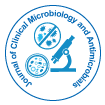

Ayman Kamal El Essawy
In 2017 the World Health Organization (WHO) classified carbapenem resistant Pseudomonas among the most critical multidrug-resistant bacteria for urgent attention. In this study verigene-nanosphere microarray based assay and multiplex PCR were tested for detection of carbapenem encoding genes. Carbapenemase encoding gene sequencing of parent strain and its UV mutant followed by nucleotide sequence alignments were also conducted. Bacterial resistance to carbapenem was tested after induced plasmid curing by sodium dodecyl sulfate (SDS) and heat treatment. A set of genes including IMP, VIM and SME was detected in one reaction by multiplex PCR. Verigene-nanosphere detected 3, 0, 0 among 5, 4, 11 and previously determined positive strains for VIM, IMP, KPC genes respectively. Carbapenem resistance was preserved after treating CRPA strain by heat or SDS. The nucleotide sequence alignments of VIM, IMP and KPC genes showed relatedness to many gram negative species. VIM gene was lost in UV mutant and IMP and KPC genes were preserved but 1-2% sequence modification was occurred without change in resistance to imipenem and meropenem. In conclusion the developed multiplex PCR detected successfully a set of carbapenem encoding genes, while microarray based verigene-nanosphere failed to detect most of the genes under the current experimental conditions. Nucleotide alignments of VIM, IMP and KPC genes revealed that these gene sequences are distributed among species of gram negative bacteria. IMP and KPC genes were preserved in UV mutant with no damage, repaired damage or little modification of nucleotide sequence and meanwhile carbapenem resistance was preserved.